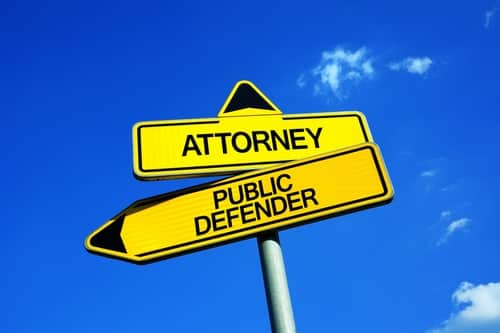“You have the right to an attorney. If you cannot afford an attorney, one will be provided for you.” This well-known portion of the Miranda warning addresses criminal defendants’ constitutional right to legal representation under the Sixth Amendment. However, if you have been arrested and charged with a crime, your Sixth Amendment rights do not automatically guarantee you free legal representation by a public defender. Instead, you must demonstrate that you qualify, and you must successfully apply to have a public defender assigned to your case.
In South Carolina, the public defender system is administered by the South Carolina Commission on Indigent Defense (SCCID). The SCCID operates pursuant to Chapter 3 of Title 17 of the South Carolina Code of Laws, which establishes the rights and responsibilities of indigent defendants. If you have been charged with a crime and are interested in having a public defender appointed to represent you, you need to make sure that (i) you qualify and (ii) hiring a public defender is truly in your best interests.
Here are some key facts to consider:
1. Appointment of a Public Defender is Not Automatic
Hiring a public defender to handle your case is not as simple as telling the police that you need an attorney. Section 17-3-10 of the South Carolina Code of Laws states:
“Any person entitled to counsel under the Constitution of the United States shall be so advised and if it is determined that the person is financially unable to retain counsel then counsel shall be provided upon order of the appropriate judge . . . .”
There are two critically important aspects of Section 17-3-10. First, you are only entitled to a public defender if “it is determined” that you lack the financial resources to hire a private attorney. Second, obtaining representation by a public defender requires an order from a judge.
In order to demonstrate that you qualify to have a public defender appointed, you must sign an affidavit which states that you are “financially unable to retain counsel.” The affidavit must also include a list of all of your assets. Under Section 17-3-30 of the South Carolina Code of Laws, “If it appears that [you have] some assets but they are insufficient to employ private counsel, the court, in its discretion, may order [you] to pay these assets to the general fund of the State.” Receiving representation from a public defender also creates a claim against your assets and estate, “in an amount equal to the costs of representation,” unless the judge waives this requirement in his or her discretion.
2. Your Income Must Fall Below the Federal Poverty Level
In South Carolina, a person is only considered “financially unable to retain counsel” if his or her income falls below the federal poverty level—although judges have the discretion to appoint counsel to individuals whose income does not fall below the federal poverty level in some cases. As explained by the SCCID, “To qualify to have an attorney appointed to represent you, a number of factors are considered to determine if you are indigent. Those factors include, but are not limited to, your income, property you may own, the number of people in your household and their income, your debts, and the US Poverty Guidelines.”
For individuals who are single and have no children, the federal poverty level is $12,140 in annual income. If you are married without children, the federal poverty level is $16,460. The federal poverty level increases by approximately $4,000 for each additional member of your family.
3. Public Defenders are Extremely Busy
While many public defenders are very good at what they do, they are also extremely busy. In York County, which has a population of approximately 275,000, there are just 13 public defenders. Statewide, there are approximately 200 South Carolina public defenders. Even with the screening of indigent defendants and the requirement for judicial approval, public defenders often find themselves overwhelmed with cases, and this means that they only have so much time to devote to each individual defendant.
4. Public Defenders Cannot Handle Appeals or Petitions for Post-Conviction Relief
In South Carolina, public defenders are not assigned to handle appeals. As a result, if you are convicted in court and need to appeal your sentence, you will need to hire another attorney. While you may be eligible for representation by the SCCID’s Division of Appellate Defense, this will mean working with a new attorney, and the Division of Appellate Defense only handles about 1,000 appeals statewide each year.
Likewise, public defenders cannot provide representation for petitions for post-conviction relief. These proceedings fall outside of the scope of the SCCID’s services, which are limited to criminal trials and appeals.
5. Even if You are Eligible for a Public Defender, it May Is in Your Best Interests to Hire a Private Attorney
With all of this in mind, even if you are eligible to have a public defender appointed to represent you, it may still be in your best interest to hire a private attorney. This is particularly true if you have been charged with a crime that carries substantial penalties under South Carolina law. When you hire a private attorney, not only do you get to choose who will be fighting for your freedom in court, but you have the opportunity to choose a lawyer who controls his or her own caseload.
When you are facing a criminal charge in South Carolina, your choice of legal representation matters immensely. If you have questions or would like more information about the options that are available to you, we encourage you to contact us for a confidential consultation.
Speak with a Rock Hill, SC Criminal Defense Lawyer in Confidence
Located in Rock Hill, our firm provides legal representation for individuals who are facing criminal charges in York County and the surrounding areas. To discuss your case with one of our criminal defense lawyers, call us at 803-328-8822 or request an appointment online today.

